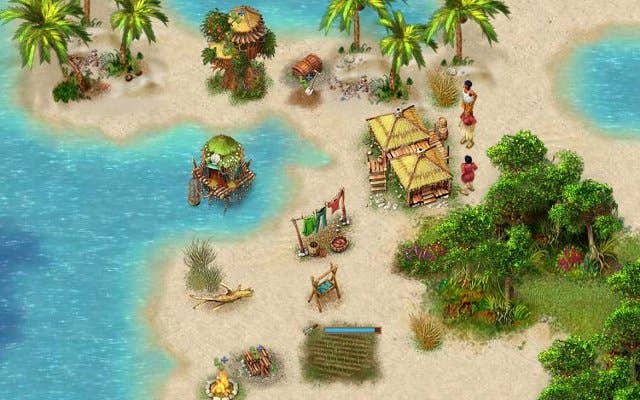Growing Pains
Innogames co-founder Hendrik Klindworth on the importance of quality, catching Bigpoint, and the restrictive nature of Facebook
"We have a smaller number of games and a higher number of players per game, which is related to the fact that we focus so much on each individual games," Klindworth says. "We put a strong team on each game, focus on quality. We don't want to rush out with 20 or 30 games, but have enough energy for each game to make it a success."
At InnoGames, player retention is everything. The company has around 100 community managers in locations all over the world in an attempt to get the clearest possible picture of what its customers need. Loyalty is a valuable but rare commodity in the world of free-to-play browser games, yet Klindworth claims that the, if you discount the people that just try a game for 20 seconds and leave, the average InnoGames customer sticks with a single product for more than 6 months.
"There's a big difference from Facebook," Klindworth points out. "Our audience is more loyal to our games, and we have significantly higher DAU to MAU ratios."
Indeed, Klindworth regards the company's one and only Facebook game, West Wars, as an "experiment" - one that did little to convince InnoGames to follow the herd into the increasingly crowded social space.
Our audience is on Facebook because so many people are on Facebook, but they wouldn't want to play on Facebook
"In the long-term we want to integrate Facebook Connect in all of our games, [and] use the social graph of Facebook," he says. "We want to use the features of Facebook but we don't want to be inside Facebook. We want to have the players of our own games, and build up our own audience, and use our own payment methods."
"Facebook limits you in three aspects. A bit in marketing, because you can't reach out to everyone - some people do not want to play in Facebook or don't have a Facebook account. It limits you on technology; especially because, you can go full-screen of course, but in the beginning you are inside Facebook, and for a rich game experience you need as much space as possible."
"And then service and payment, of course, because it's convenient for the player to have one payment method, but they first have to load their Facebook credits, and then there's the revenue share... That's just money missing for new game development and new game features."
Klindworth believes that there is an audience of core gamers on Facebook - the very same people that InnoGames has targeted up to this point - but what many developers rushing to make core-focused social titles have misunderstood is that those people don't regard it as a compelling environment for gaming.
"Yes, our audience is on Facebook, because so many people are on Facebook, but they wouldn't want to play on Facebook. There is a core audience that doesn't want its real-life friends to know that they've just milked a cow, or done something in the game. I'm a core audience player, and more and more games have Facebook integration, but I always try and make sure that they don't post on my wall."

Klindworth is unwilling to rule out other Facebook games in the future, but for now InnoGames is focused on expanding its audience by playing to its strengths. This is exemplified by two forthcoming projects: Forge of Empires, a strategy game that seems equal parts Age of Empires and Civilization, and Lagoonia, a hybrid of The Sims and The Settlers that represents the company's strongest attempt at reaching out to a female audience.
Both games are visually striking - particularly Forge of Empires - but they also impress in other, more surprising ways. In a market where the vast majority of games are based around combat and violence Lagoonia displays admirable pacifism, rewarding co-operation and constructive behavior. Forge of Empires, on the other hand, is arguably more typical of browser games in general, but its combination of empire-building, hex-based PvP battles, and a diverse range of win conditions is a generous amount of gameplay for a free-to-play release. The similarities to existing games are impossible to overlook, of course, but they wear the comparison well.
According to Volker Dressel, the company's chief marketing officer, the audience InnoGames wants to attract with games like Forge of Empires and Lagoonia is the very same one that Nintendo tapped with the Wii and DS. He believes that many of those people now also play on Facebook, but regard the lack of depth in most social games as a necessary compromise to gain access for free. InnoGames wants to offer a superior alternative, and Dressel claims that the public's understanding that sophisticated games are now available through a browser for free is growing all the time.








